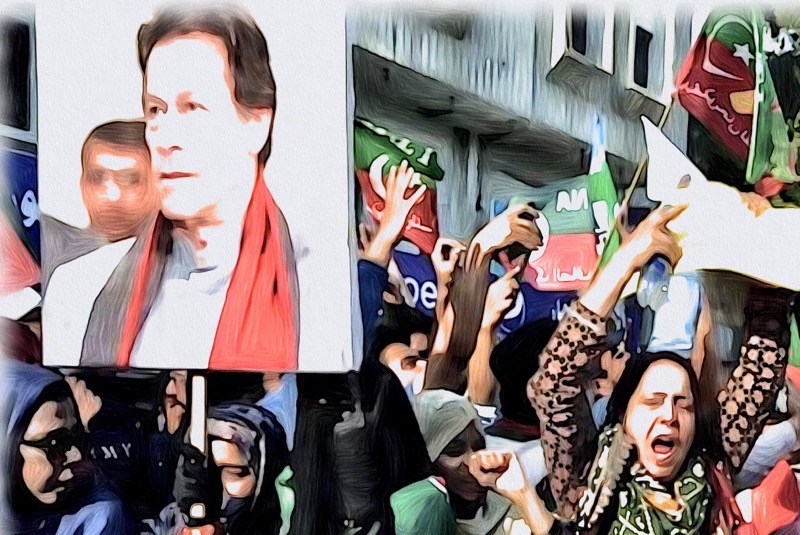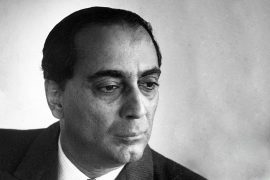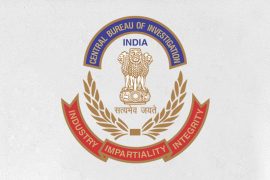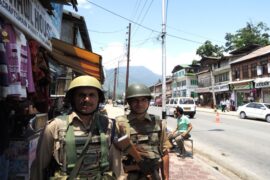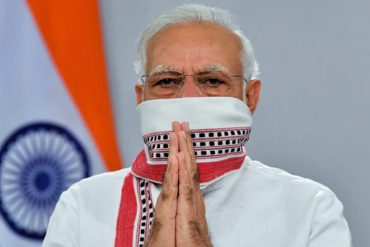It is an open secret that the military and the intelligence agencies control Pakistan. Democracy exists only in name. Traditionally, the ‘establishment’—as the military and the intelligence agency, the ISI, are called—dictates who would become the Prime Minister. It is almost impossible for any politician to become a leader without the military’s support.
In 2018, when Imran Khan, the charismatic former cricketer, took charge as the Prime Minister of Pakistan, he did so with the blessings of the military and the ISI. He shared power with the military as other Prime Ministers did. Soon, he became a populist figure in Pakistan with a cult following among voters. However, in 2021, he clashed with the army chiefs over who should lead the intelligence agency; by 2022, he was out of office, and Shehbaz Sheriff, Nawaz Sheriff’s younger brother, took charge as the Prime Minister.
In 2024, the Pakistani ‘establishment’ presumed that it could, as always, control the election results. Most people in Pakistan also thought elections were a formality with predetermined outcomes.
But after he was thrown out of power, Imran Khan did the unimaginable. He went after the establishment, named and shamed army heads in public and locked horns with Pakistan’s military and security apparatus. Using his popularity, he peddled a conspiracy theory in which he alleged that Pakistan’s opposition and the military worked with the United States to throw him out of power.
The ‘establishment’ did its best to sideline Imran Khan. They tried to tilt public opinion against Khan and his party, the Pakistan Tehreek-e-Insaaf (PTI). To control Imran Khan, the military and the ISI took draconian measures.
They muzzled the press; newspaper editors, publishers, and owners were ordered not to use Imran Khan’s name on television or in newspapers. Wary of inviting the wrath of the establishment, Pakistan’s journalists used code words and cryptic language to refer to Imran Khan and his party. Imran Khan became ‘Sulayman’s father’ (his son’s name was Sulayman); his party was hardly mentioned, if ever. Pakistanis had to read between the lines in reporting.
To bypass this, Imran Khan used social media to his advantage—particularly YouTube and X (formerly Twitter). He shared his message with millions of his followers on social media. An army of sympathetic bloggers, vloggers, and YouTubers also shared Imran Khan’s and PTI’s messages.
Those who did not comply with the establishment’s diktats were dealt with a stern hand. For instance, Imran Riaz Khan, the broadcast journalist and YouTuber with over four million followers, was illegally abducted and placed under detention three times. The third time, he disappeared only to resurface after four months—damaged and unrecognisable. The establishment served him as a warning to the rest of Pakistan’s media.
Other high-profile journalists were also abused, abducted, assaulted or assassinated. For instance, Arshad Sharif, a prominent anchor and broadcast journalist, fled Pakistan and landed in Dubai. But he was chased out of Dubai. He took shelter in Kenya, where he was assassinated. Similarly, Moeed Peerzada, a prominent journalist in Pakistan, was threatened and warned of being assassinated. After Arshad Sharif’s murder, Moeed was forced to leave Pakistan.
Moreover, the Pakistani ‘establishment’ officially banned the PTI from the ballot, and the party’s candidates were forced to contest as independents. Furthermore, a week before the elections, Imran Khan was sentenced to more than 30 years on dubious corruption charges; he was also arrested and convicted on bizarre allegations that he had an ‘un-Islamic marriage.’
The ‘establishment’ thought that it made Imran Khan and his party unelectable. They had overestimated their power and underestimated Imran Khan’s popularity. Clearly, Pakistan’s military and the ISI seem to have failed to pull the strings to their tune; their presumptions have gone wrong.
As the PTI was banned from the ballot, candidates allied with Imran Khan’s party have contested as independent candidates. And Pakistan’s electorate has voted in favour of those allied with Imran Khan’s party.
Despite widespread electoral rigging, independent candidates allied to Imran Khan’s Pakistan Tehreek-e-Insaf (PTI) party won 101 of 265 National Assembly seats. Ex-Prime Minister Nawaz Sharif’s Pakistan Muslim League-Nawaz (PMLN) has won 76 seats.
As the votes were not in tune with the establishment’s expectations, election results were slowed down; Pakistan’s Election Commission website suddenly went down on election night.
‘This election was hardly an election. I think the right word for this is a predetermined selection. The military establishment had expected that they would be able to control the results. [But] within two to three hours, it became obvious that Imran Khan’s party was sweeping the election was sweeping the elections. So, the military took control of the Election Commission and has manufactured totally new election results,’ says Moeed Peerzada.
Pakistan has plunged into a political chaos. Though the people of Pakistan have voted for Imran Khan, Nawaz Sherif claims to have a victory and wants to form the government. The military is conducting back-channel negotiations between parties to create a coalition.
What is happening in Pakistan serves as an example of how countries under military dictatorships murder democracy by a thousand cuts.
-30-
Copyright©Madras Courier, All Rights Reserved. You may share using our article tools. Please don't cut articles from madrascourier.com and redistribute by email, post to the web, mobile phone or social media.Please send in your feed back and comments to [email protected]

